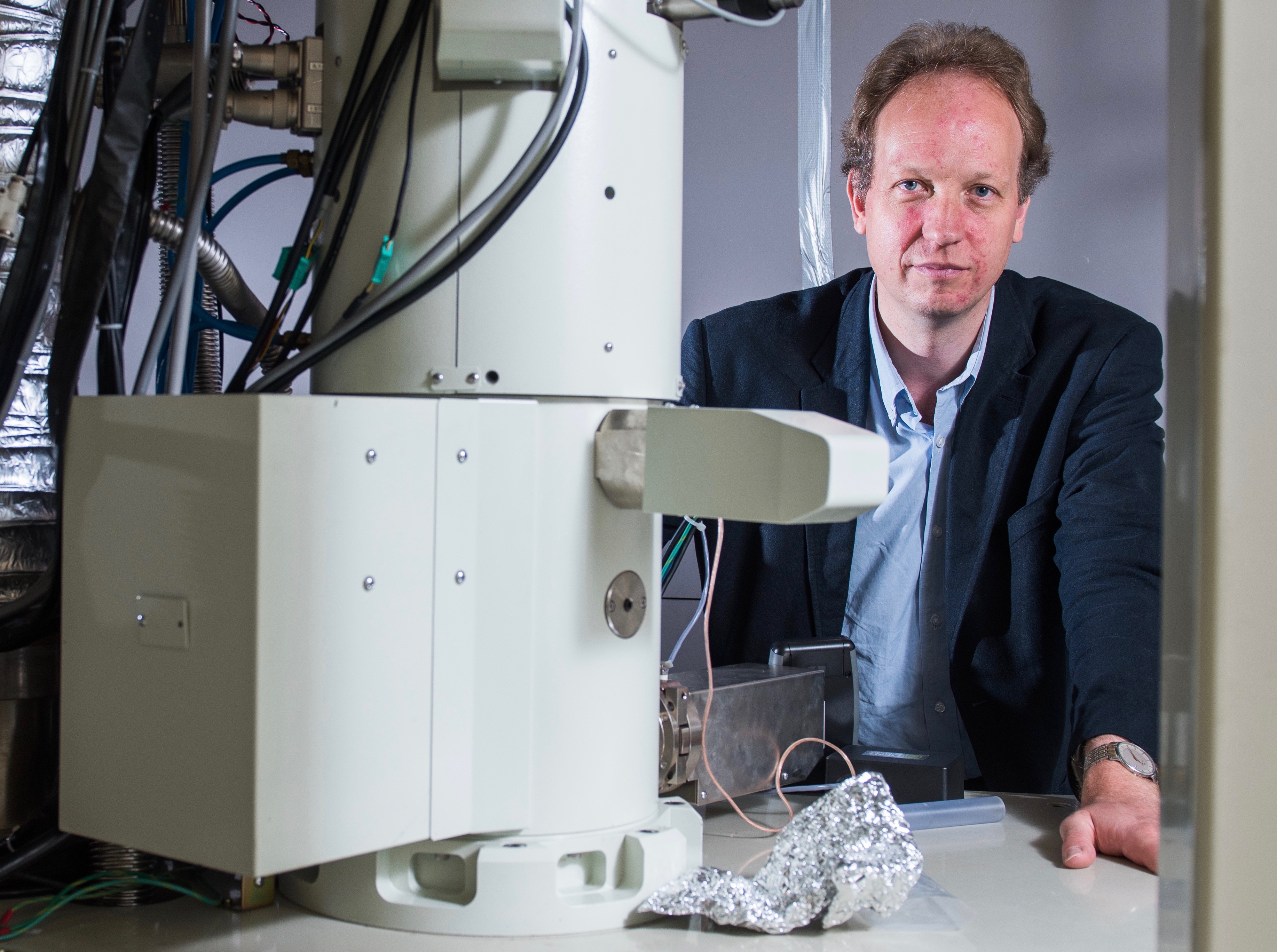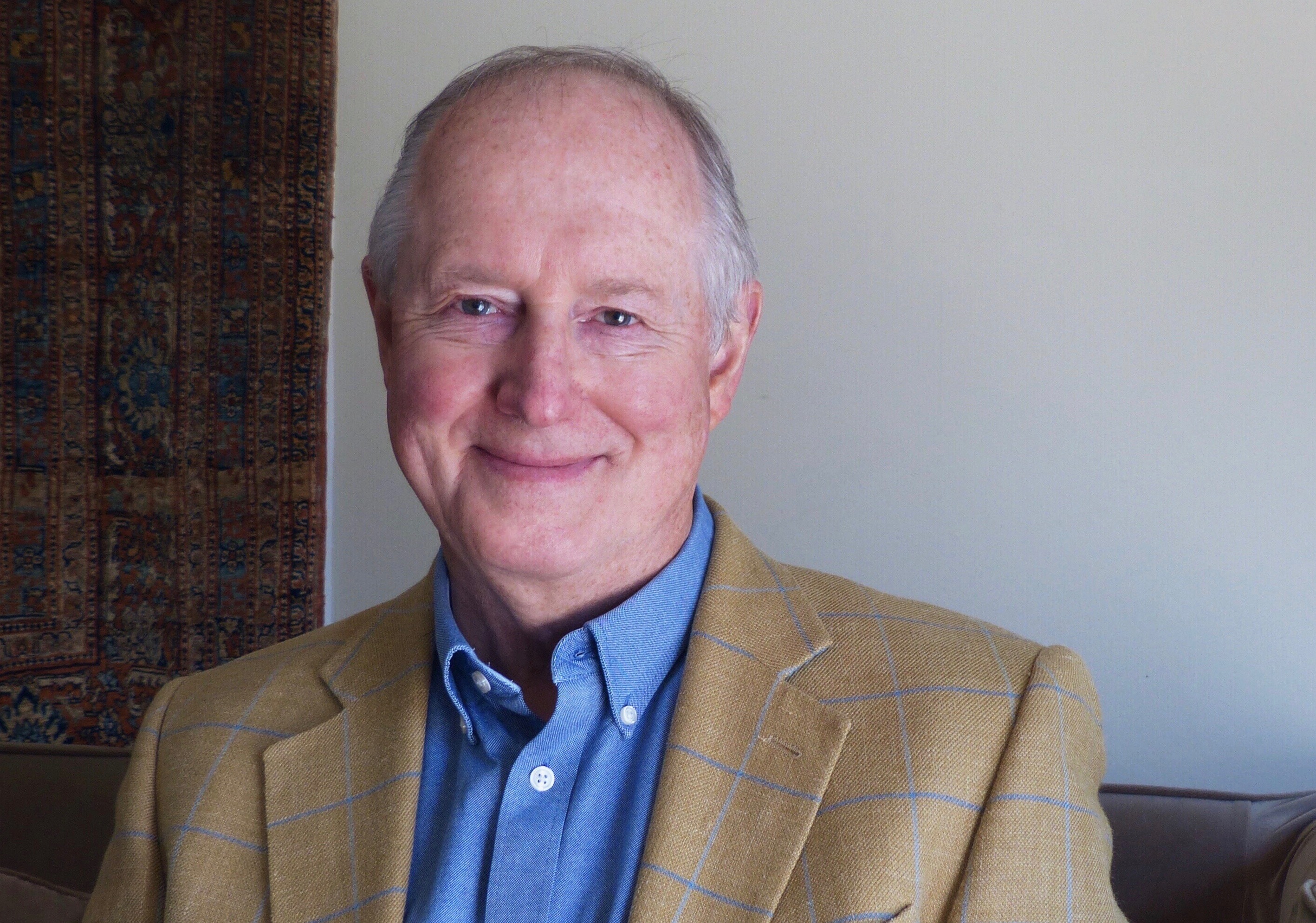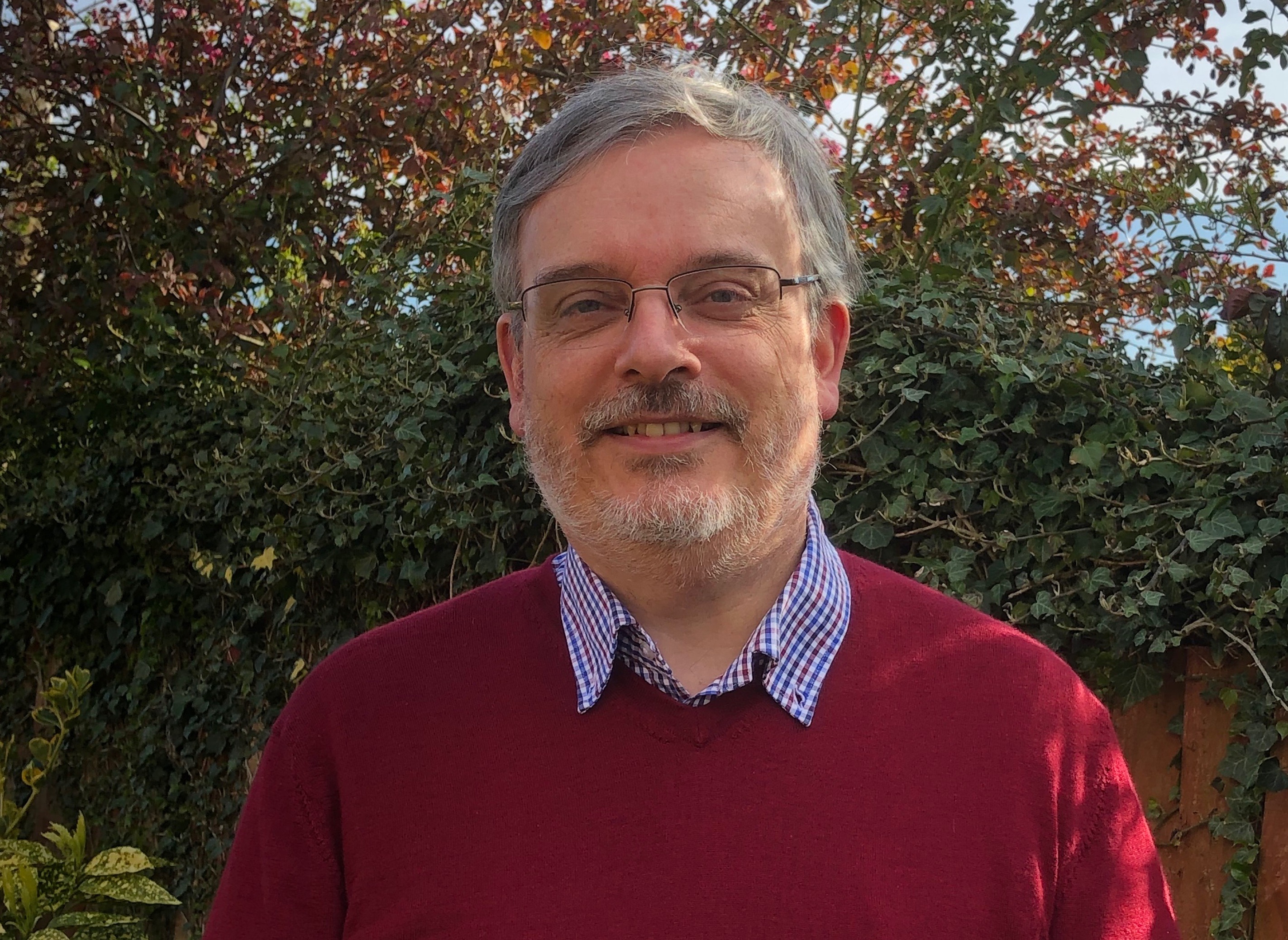‘Exceptional’ St John’s alumni elected to prestigious Royal Society
“At this time of global crisis, the importance of scientific thinking, and the medicines, technologies and insights it delivers, has never been clearer”
Three outstanding St John’s scientists are among 62 newly-elected Fellows to join the world-renowned Royal Society.
Professor Peter Nellist, Professor John Plane and Professor Nigel Scrutton have been selected to join the 2020 Fellowship for their exceptional contributions to scientific understanding. Their achievements range from pioneering new techniques for atomic-resolution microscopy, to investigating the dust around stars and advancing our knowledge of enzymes.
The Royal Society is a Fellowship of many of the world's most eminent scientists and is the oldest scientific academy in continuous existence. As Fellows of the Royal Society, the three members of our alumni community now count among a distinguished group of more than 1,700 scientists, including around 70 Nobel Laureates.
Venki Ramakrishnan, President of the Royal Society, said: “At this time of global crisis, the importance of scientific thinking, and the medicines, technologies and insights it delivers, has never been clearer. Our Fellows and Foreign Members are central to the mission of the Royal Society, to use science for the benefit of humanity.”

Professor Peter Nellist FRS gained his BA (1991), MA (1995) and PhD (1996) at St John’s and is now Professor of Materials and Joint Head of Department, Department of Materials, at the University of Oxford. He has pioneered new techniques for atomic-resolution microscopy. Viewing the arrangement of atoms in materials, and in particular at defects in crystals, is a key tool for explaining the properties of materials enabling the development of new materials.
Prof Nellist’s work has focused on scanning transmission electron microscopy and its application across a range of functional and structural materials. He is known for the practical implementation of electron ptychography, which allows light elements to be detected while reducing beam-induced damage, and to the theory underlying quantitative image interpretation. He has made fundamental contributions to the development of correctors for the inherent aberrations of electron lenses and their use for the three-dimensional imaging of materials.
He is a Fellow and former President of the Royal Microscopical Society and has been awarded the Burton Medal of the Microscopy Society of America and the Ernst Ruska Prize of the German Electron Microscopy Society. He also develops activities aiming to widen participation in science and promoting progression from schools to higher education.
Prof Nellist said: “I am deeply honoured to have been elected as a Fellow of the Royal Society. I look forward to working with colleagues within the Society to further the Society’s aims of supporting excellence in science and working to widen understanding of and participation in science.
"My journey in scientific research was launched during my time as an undergraduate then post-graduate research student at St John’s College. The lessons I learned around rigorous thought and questioning have stuck with me throughout my career, and will always be grateful for the support and encouragement I received from my Directors of Studies and supervisors.”

Professor John Plane FRS was a St John’s Fellow for research in Physical Chemistry 1982-1985. He is now Professor of Atmospheric Chemistry, School of Chemistry, at the University of Leeds. Prof Plane uses experimental and theoretical physical chemistry to investigate phenomena in environments ranging from planetary atmospheres to dust formation around stars. He has pioneered techniques for studying gas-phase reactions of metallic species, and is a world-leading expert on the chemistry of metals which ablate from cosmic dust particles in upper atmospheres.
He has also made significant contributions to understanding the chemistry of the Earth’s lower atmosphere using a combination of observations, laboratory studies and atmospheric modelling.
Prof Plane has been awarded the Royal Society of Chemistry Tilden Prize (2006), the European Geoscience Union Vilhelm Bjerknes Medal (2017), and was elected a Fellow of the American Geophysical Union (2017). He is also a Fellow of the Royal Society of Chemistry and the Royal Astronomical Society.
He said that the freedom of his Fellowship at St John's enabled him to develop his first atmospheric model, which was of the layer of sodium atoms that is produced by the ablation of cosmic dust in the upper atmosphere. He added: "This work kindled my interest in cosmic dust – its origins around old giant red stars, and the impacts of the dust in the atmospheres of planets and moons in the solar system – which has been a major focus of my career."
The original sodium model, now expanded to include all the major meteoric metals such as iron and magnesium, has been incorporated into leading international atmosphere chemistry-climate models of the whole atmosphere. It is the main tool used to interpret measurements made by satellites and laser radar observatories on all six continents. These models are constructed using laboratory measurements of reaction rates, and the other component of Prof Plane's St John's Fellowship was developing novel techniques for studying the gas-phase reactions of metallic species. This work was undertaken together with his former PhD supervisor, the late Dr David Husain of Pembroke College.

Professor Nigel Scrutton FRS gained his PhD (1989) and ScD (2003) at St John’s, and held a research Fellowship in Biochemistry from 1989-1992. He is now Director of UK Future Biomanufacturing Research Hub and Manchester Synthetic Biology Research Centre, and Professor of Molecular Enzymology at the University of Manchester.
Prof Scrutton has made major contributions to studies of enzyme structures and mechanisms. His wide-ranging interdisciplinary approaches have exploited the development, use and integration of multiple (time-resolved) spectroscopies, structural biology, computational simulations and theory. He has elucidated new mechanisms for biological electron and hydrogen transfer, discovered new cofactors, and emphasised the role of dynamics in catalytic cycle chemistry, substrate and product binding, as well as drug and other small molecule interactions.
His work is on both fundamental and applied aspects of biological catalysis, especially in relation to the emerging bioeconomy. He is a Founding Director of the fuels-from-biology company C3 BIOTECH Ltd and a former Director of the Manchester Institute of Biotechnology, which under his leadership was recognised by the award of the Queen’s Anniversary Prize for Higher and Further Education.
Prof Scrutton is a recipient of the Biochemical Society Colworth Medal, the Royal Society of Chemistry Charmian Medal, the Rita and John Cornforth Award, and Interdisciplinary Prize. He said: “I am very honoured to be elected a Fellow of the Royal Society. I am delighted that my work and that of my group has been recognised in this way.
"Science is a team pursuit and I thank all research students and postdoctoral co-workers that I have collaborated with over many years. As a former PhD student and College Research Fellow I was fortunate to benefit from the wider intellectual environment of the College at an early stage of my academic career, and in no small part the superb mentorship of my PhD supervisor Prof Richard Perham FRS (former Master of St John’s). These formative experiences have profoundly influenced my academic career.”
The St John’s alumni join an incredible 10 current University of Cambridge scientists to be elected to the Royal Society’s 2020 Fellowship.
President Venki Ramakrishnan added: “While election to the Fellowship is a recognition of exceptional individual contributions to the sciences, it is also a network of expertise that can be drawn on to address issues of societal, and global significance. This year’s Fellows and Foreign Members have helped shape the 21st century through their work at the cutting-edge of fields from human genomics, to climate science and machine learning.
“It gives me great pleasure to celebrate these achievements, and those yet to come, and welcome them into the ranks of the Royal Society.”
Past Fellows and Foreign Members of the Royal Society include Isaac Newton, Charles Darwin, Albert Einstein, Dorothy Hodgkin and Stephen Hawking.
Published: 01/05/2020